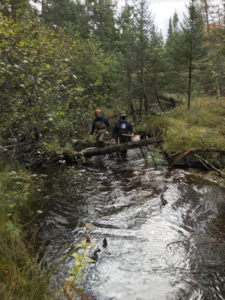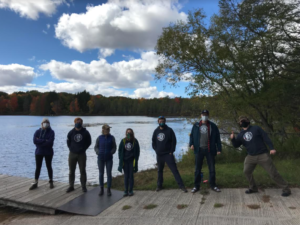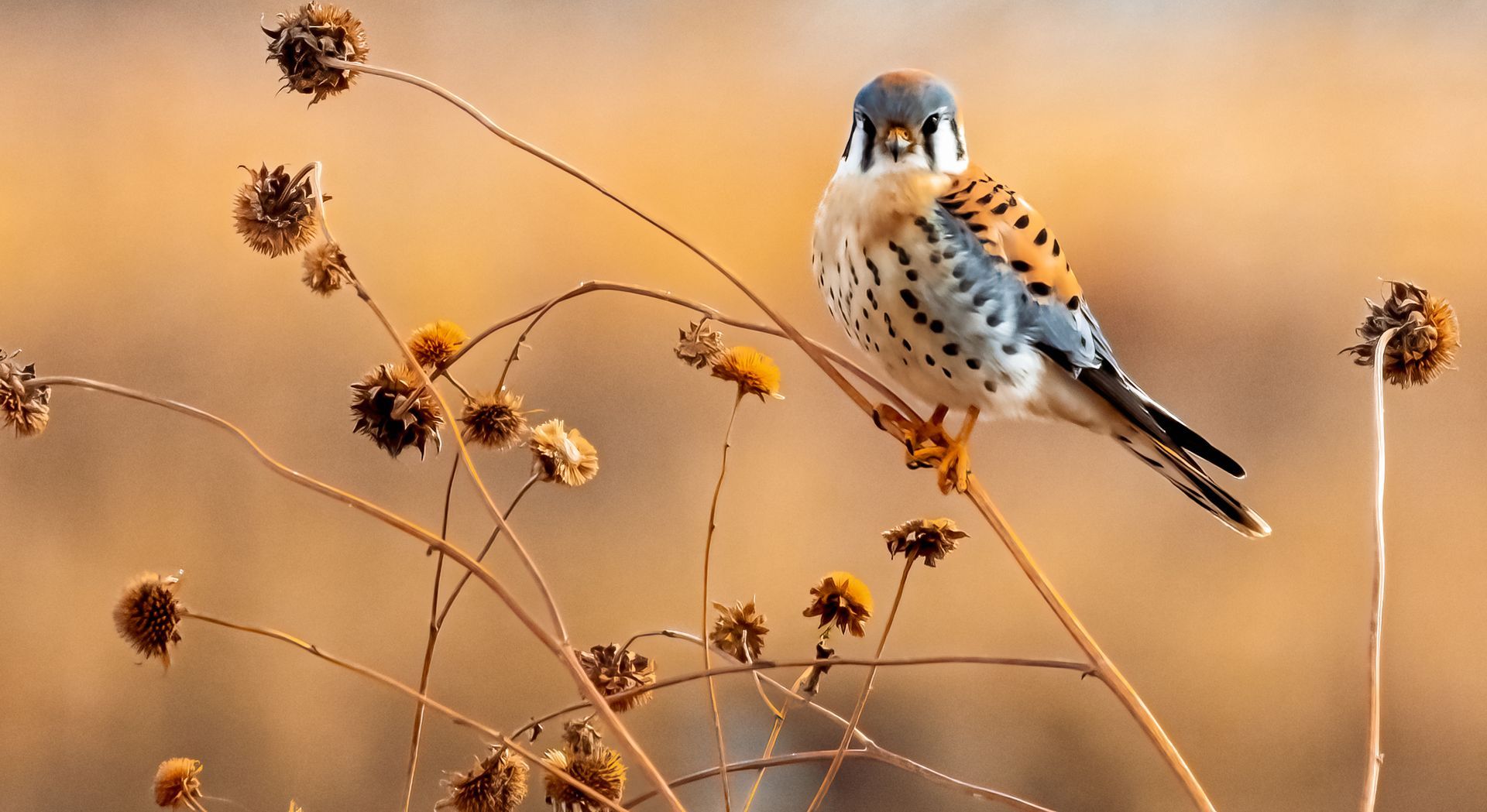MiCorps Stream Monitoring in Kalkaska!
On October 8, I woke up at 5:00 AM; the second my alarm went off, I was up like a child on Christmas morning. On this day, which to others might have been nothing but an ordinary Thursday, I was going on a stream monitoring adventure.
 As I got in my car and began the trip north on U.S. 127, I was thinking about all of the different macroinvertebrates that I would see in the sampling. A few months prior in June, I attended a training hosted by the Au Sable Institute of Environmental Studies and the Kalkaska Conservation District, where I became a certified Michigan Clean Water Corps (MiCorps) Stream Leader. I had never previously done any stream monitoring and was not familiar with MiCorps. Upon completion of that training, I learned that “MiCorps was created through Michigan
Executive Order #2003-15
to assist the
Department of Environment, Great Lakes, and Energy (EGLE)
in collecting and sharing water quality data for use in water resources management and protection programs.”
As I got in my car and began the trip north on U.S. 127, I was thinking about all of the different macroinvertebrates that I would see in the sampling. A few months prior in June, I attended a training hosted by the Au Sable Institute of Environmental Studies and the Kalkaska Conservation District, where I became a certified Michigan Clean Water Corps (MiCorps) Stream Leader. I had never previously done any stream monitoring and was not familiar with MiCorps. Upon completion of that training, I learned that “MiCorps was created through Michigan
Executive Order #2003-15
to assist the
Department of Environment, Great Lakes, and Energy (EGLE)
in collecting and sharing water quality data for use in water resources management and protection programs.”
“The MiCorps’ Volunteer Stream Monitoring Program (VSMP) provides technical assistance, training, and grants to volunteer stream monitors in Michigan to ensure that they are collecting reliable, high-quality data.” The goals of the Au Sable Institute VSMP training in June was to create a comprehensive monitoring platform for the Upper Manistee River, create a volunteer base dedicated to long term monitoring with the end goal of generating reliable data for dissemination and distribution to the public and policymakers.
After becoming certified in June, I was very excited for the fall sampling days to be put on my schedule, knowing that I would only be able to attend the monitoring with the Kalkaska Conservation District on the eighth due to other obligations with my host site.
After the drive north, I connected with six other Huron Pines AmeriCorps members who had also attended the training in June. Renee Penny of the Kalkaska Conservation District and Paul Wimerslage of the Au Sable Institute led us through the training in June, and they led this stream monitoring day. After laying out the plan for the day, we broke into two groups. One group went to sample Big Cannon Creek, and the other went to Big Devil Creek, both creeks are tributaries of the Manistee River.
I lucked out with my stream monitoring assignment, within minutes from arriving at the site I was in Big Devil Creek, working a kick net collecting

We were very fortunate to have some great weather on the day of the monitoring.
macroinvertebrates. The plan was to collect from a 300-foot stretch of the creek for 30 minutes and then sort through the collection for an additional 30 minutes. I worked upstream with fellow Huron Pines AmeriCorps member Bradley Biggs. We started the sampling near a culvert, and as we worked upstream, we focused on taking samples from diverse spots along the stream, such as riffles, undercut banks and large woody debris. As we sorted through the collection in the second half, Paul helped us sort and taught us more about the type of macros we had collected. The stream appeared to have quite a healthy assortment, but we will not know all that was collected until Paul goes through the collection back in his lab. After completing the Stream Habitat Assessment, we packed up the gear and drove off for a well-earned pizza lunch.
At the beginning of my service term in February, I had hoped to get out into the field and learn some of the technical skills that conservation professionals use to ensure the health of watersheds. This day and others like it helped me to achieve that goal.
I am so glad that I got the opportunity to get involved with the MiCorps program, and I am looking forward to helping out again with stream monitoring days next year. To learn more about how you can get involved with MiCorps and help with future stream monitoring in your area visit https://micorps.net/stream-monitoring/ .
The post MiCorps Stream Monitoring in Kalkaska! appeared first on Michigan United Conservation Clubs.



